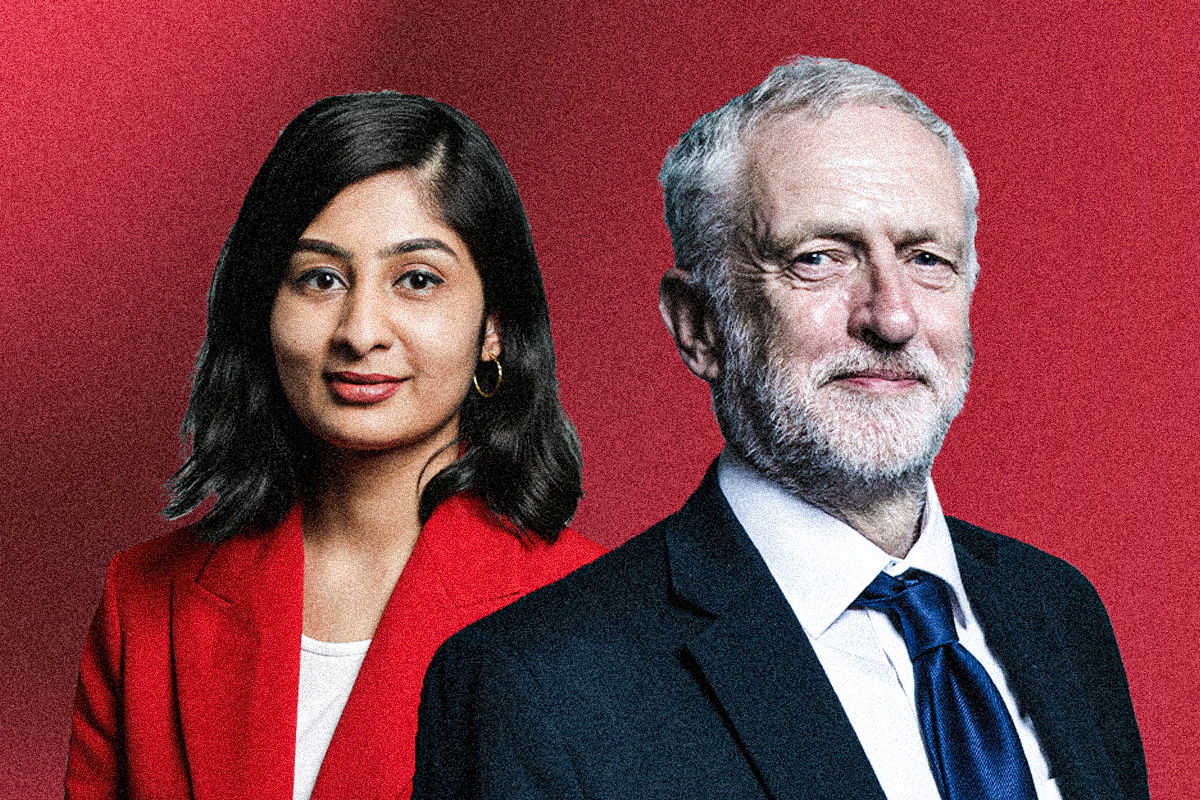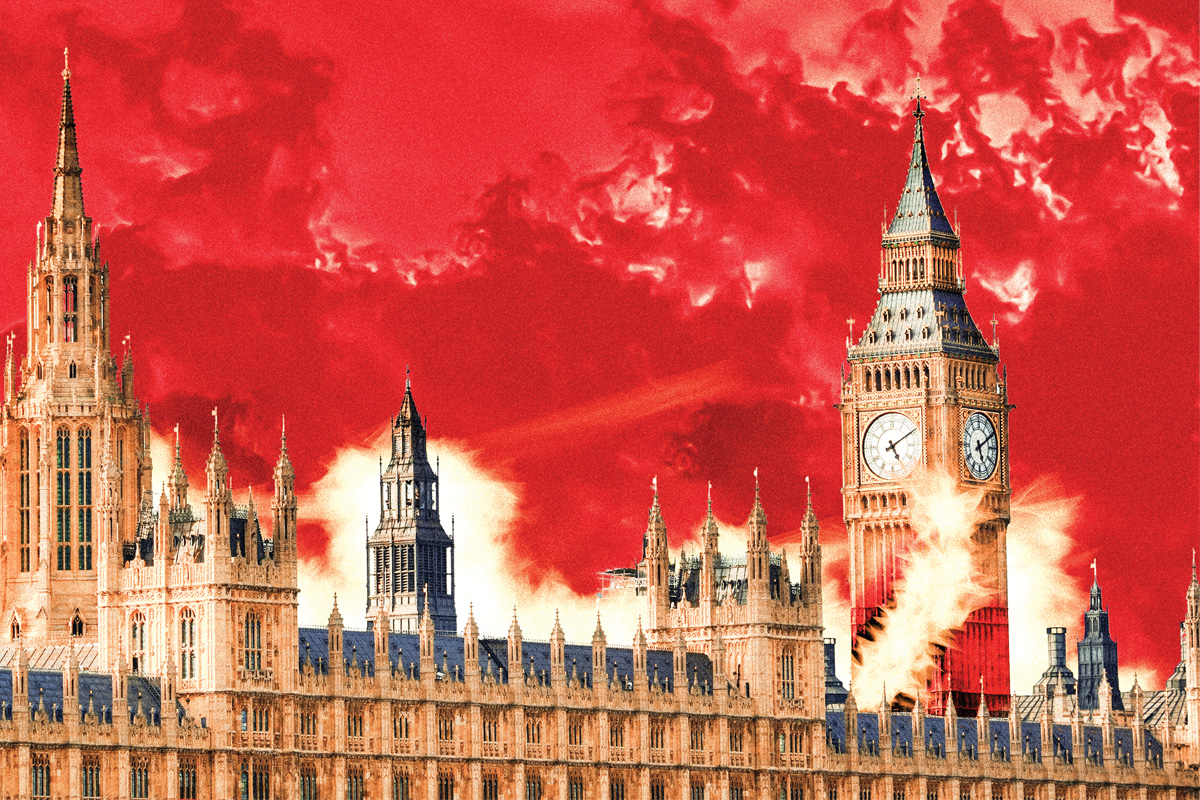While tourists flock to Westminster to snap a selfie in front of Big Ben, the adjacent House of Commons lies empty. Britain’s MPs are currently enjoying the last few weeks of their summer recess. Most voters will be hoping that they don’t come back.
Politicians are universally despised and hated. All of the mainstream parties and their leaders are viewed unfavourably by ordinary people. Prime Minister Keir Starmer’s approval rating currently sits at a record low of -37.
According to recent research by sociologists More in Common, a staggering 87 percent of the public say they do not trust the country’s political representatives.
Scientists and people’s neighbours are amongst those in society seen in a positive light, with 58 percent and 42 percent net-trust scores. By contrast, politicians are on negative figures across all demographics, with an overall net-trust level of -75 percent.
Even big business and news journalists are rated more highly on this metric, on -41 percent and -39 percent, respectively.
The latest British Social Attitudes survey, meanwhile, reveals that just 12 percent of those polled “trust governments to put the interests of the nation above those of their own party”.
No wonder 38 percent of those surveyed by More in Common, for their report entitled ‘Shattered Britain’, sympathised with the idea of “burning down” all of the UK’s political institutions.
Scandal and sleaze

Everyone can see that Parliament is a den of thieves, infested with crooks, liars, and reprobates.
During their 14 years in power, the Tories were dogged by all manner of scandals and sleaze.
Conservative ministers engaged in outright corruption and cronyism, handing out lucrative government contracts to their wealthy chums. The ‘revolving door’ between Whitehall and big business was in full spin. And those in Downing Street hosted bacchanalian pandemic parties, while the rest of us endured gruelling lockdowns.
Little has changed under Labour rule, however.
Starmer has wooed CEOs and business leaders. Arm-twisting of Labour backbenchers by corporate lobbyists has been actively encouraged by the party’s chiefs. And cabinet members have received endless freebies and gifts from rich donors – with no strings attached, we are assured.
More of the same
While those in power enjoy such perks and privileges, it is a case of stagnant living standards, rising bills, and crumbling services for ordinary families.
During last year’s election campaign, the Labour leaders promised that there would be “no return to austerity”. Yet Starmer and his Chancellor, Rachel Reeves, have attempted to make welfare cuts that even the Tories considered a step too far. And they have kept in place draconian measures like the two-child benefit cap.
With Reeves and co. struggling to get the UK economy growing, meanwhile, and the ‘black hole’ in the public finances expanding, it is clear that further – deeper – cuts are being lined up for the next Autumn Budget.
And the strains on the Treasury are only made worse by Labour’s commitment to spend billions more on bombs and bloodshed; to prioritise guns before butter.
At the same time, Starmer’s Labour is aping the Tories when it comes to the question of migration, with government ministers boasting about deportation figures and happily deploying divisive, racist rhetoric.
Tory stench. Tory austerity. Tory policies. This is what voters smell, taste, and see when it comes to this so-called ‘Labour’ government.
Hence why More in Common found that 67 percent of respondents believe that Starmer’s administration “feels like more of the same” compared to its Conservative predecessors.
Broken Britain
It is the anger towards this rotten status quo, and the establishment politicians who defend it, that is fuelling the rise of Reform UK.
Nigel Farage has opportunistically tapped into this mood, with demagogic promises to fix ‘broken Britain’ – in particular, by throwing out migrants and refugees, who Reform, the Tories, and Starmer’s Labour unanimously declare to be the source of all society’s problems.
This xenophobic tub-thumping and cynical scapegoating, egged on and amplified by far-right agitators, has served to whip up discontent in working-class communities, leading to a series of reactionary protests outside asylum-seeker hotels in recent weeks.
This menace must be met head on, both organisationally and politically.
This means mobilising workers and youth en masse to confront the far right and drive them off the streets – as was seen across the country last summer.
And it means going on the offensive to target the real, common enemy of the working class: not those who arrive on Britain’s shores on small boats, but those who sail around on luxury yachts; not the refugees housed in temporary accommodation, but the billionaires, bankers, and big landlords who sit on massive fortunes and profit off of our misery.
Corbyn’s new party

In announcing the launch of a new party, Jeremy Corbyn and Zarah Sultana have taken positive steps towards providing a much-needed political alternative on the left.
While Starmer and Farage demonise migrants and benefit-claimants, Jeremy and Zarah correctly point the finger at the “rigged system” that “protects the interests of corporations and billionaires”, calling for a “mass redistribution of wealth and power” to “fix the crises in our society”.
The contrast is even more striking in regards to Palestine. While hypocritical Labour leaders cry crocodile tears about the famine in Gaza, and arrest hundreds of activists under charges of supporting ‘terrorism’, Corbyn and Sultana have denounced “the government’s shameful complicity in genocide”.
For all these reasons, Corbyn is seen particularly favourably amongst young people. This could have a big impact at the next election, with 16-17 year-olds now promised the vote.
Fight for revolution
On this basis, Corbyn and Sultana’s party has the potential to galvanise widespread support. Already, reports indicate that hundreds of thousands have signed up and shown interest in their new political outfit.
The communists of the RCP welcome this development. We energetically support this move to found a new left party. And we will struggle to ensure its success – especially in the face of the attacks it will inevitably encounter from the establishment and media mouthpieces.
At the same time, we will consistently argue for such a party to adopt a revolutionary programme. Only by breaking with capitalism and overthrowing imperialism can we put an end to austerity and war.
The system is rigged. But it cannot be patched up. It must be overthrown, through a revolution against the billionaires and warmongers.
Across the globe, millions are already drawing such conclusions. According to recent surveys, almost a third of 18-24 year-olds in Britain have a positive view of communism. Amongst 25-34 year-olds, this figure rises to 40 percent.
The task in front of us is to organise these radicalised layers into a force that can fight for a communist future.
So if you want to burn down the old order, and see a world free of conflict, cuts, and climate chaos, then join the Revolutionary Communist Party today.






